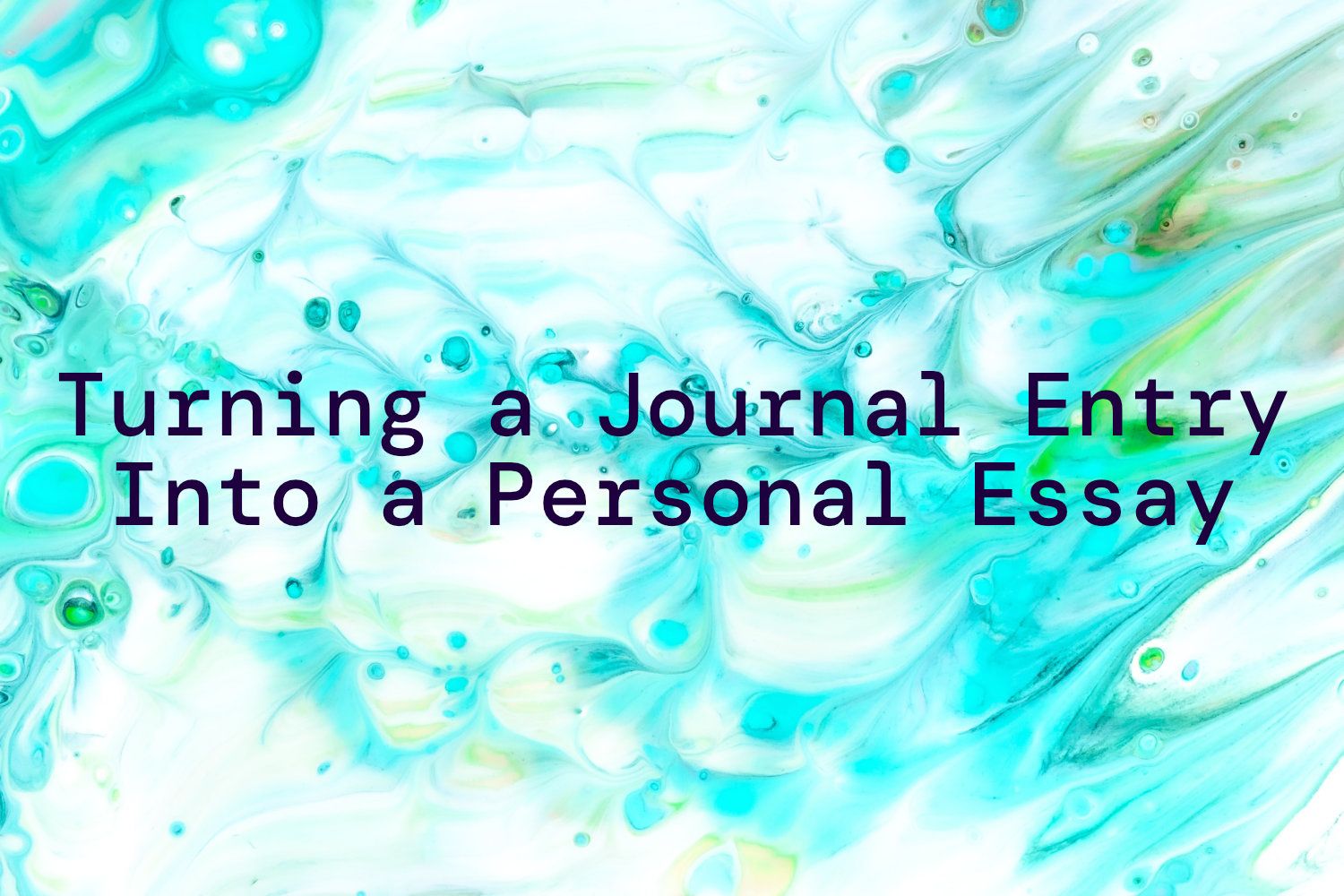Turning a Journal Entry Into a Personal Essay

Your journal can be a great resource for personal writing for publication
Although for many people a journal is something that contains thoughts, ideas, and feelings that will never be shared with others, for some people, a journal can serve as a resource for future writing projects. Ralph Waldo Emerson called his journal his “savings bank” — a library he could reference when he needed an idea for a new piece of writing.
For writers who are interested in writing personal essays for publication, a journal is an invaluable resource. Since a journal often contains your contemporaneous thoughts, it can help you navigate the truth in what you were feeling in the moment. Journaling also gets us into the habit of using the written word to express our thoughts, fears, and feelings, which is a necessary skill for personal essay writing.
There can be some traps for personal essay writers when it comes to journals, though. Mainly: you sit down to read through an old journal entry and you think, “Hey, this is pretty good. Maybe I’ll just publish it like this.”
More times than not, publishing a journal entry as-is is not the way to go. Below, you’ll find some tips on what you should consider if you are ready to take something from your journal and turn it into a personal essay, either to publish on your own blog or to submit for publication in a literary journal or magazine.
Think about structure
One of the best things about writing in a journal is that we don’t have to worry about structure. For an essay, though, we do need to think about structure. Although a personal essay is perhaps less structured than an academic one, we still need to draw the reader in, establish what it is we’re going to be exploring, and we should ideally have both a climax and a resolution that sums up what we learned through the experience detailed in the essay.
Sometimes, the structure an essay will require will not mean laying out the events as they happened chronologically in real life. It’s possible your journal might. Creating an outline may help you to extract the details you need from the journal in a way that will best serve the essay.
Borrow phrasing from yourself
When we write in our journals, we’re typically writing in a way that is unfiltered and pure. Some of the best writing lies in phrases that were not prepared for an audience, because when we wrote them, we weren’t worrying about how they would be perceived, but rather how they represented what we were truly experiencing or feeling at the time. Our journals are chock full of these pure phrases. Though it may not make sense to directly transcribe your journal entry into an essay, it definitely makes sense to pay attention to some of the phrasing you created in your private writing, and use it where effective.
Poetic licence
Though the personal essay is a non-fiction form of writing, sometimes we need to condense timelines or reduce minutia when preparing to relay an experience to a wider audience. When we’re using our journals as resources, we will sometimes come across details that had otherwise slipped our minds but, because they’re in the journal, are brought to the forefront of our memories. Just because something was included in your journal doesn’t necessarily mean it’s a detail that is required for a reader to understand your story in your essay. Choose your details wisely. Just like how in fiction writing most details should move the story along, in non-fiction writing, most details should have relevance to the ultimate topic we are exploring. This isn’t necessarily true when we’re just writing in our journals. Be choosy about what details you extract.
Be True to Yourself
The number one authority on you is, well, you. When we are writing personal essays from memory, sometimes we mix perspective, grudges, and time into the original ingredients, which in turn creates a retelling of something that is not as accurate as it could be. A journal affords us the opportunity to visit with, in a sense, our former self — the person who was experiencing something in the moment and was reflecting about it right there and then, before time, perspective, and other things had had time to meddle. Though sometimes it can be hard, it is at the very least a good exercise (if not good practice) to use those impressions to describe what you were going through at the time, rather than to let your current perspective color your descriptions. This is where journaling can help the personal essay writer the most.
We hope that as you navigate your journaling practice and your work as an essayist, you’ll find that they will be beneficial to one another. Your journal is, much like Emerson said, a savings bank for your future writerly self — it is chock full of ideas, emotions, and notions. Happy writing!
